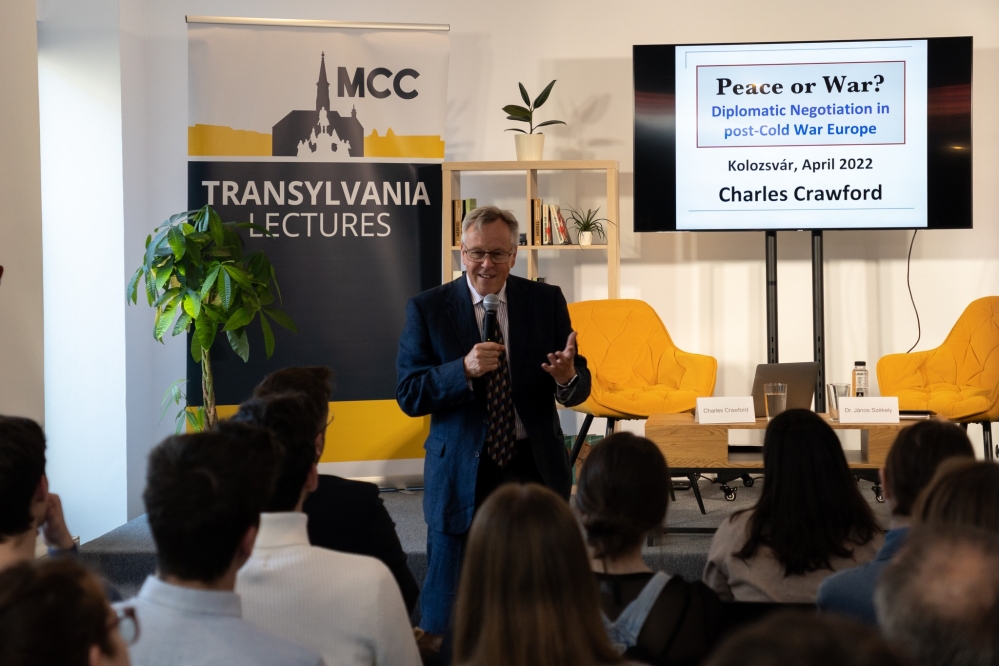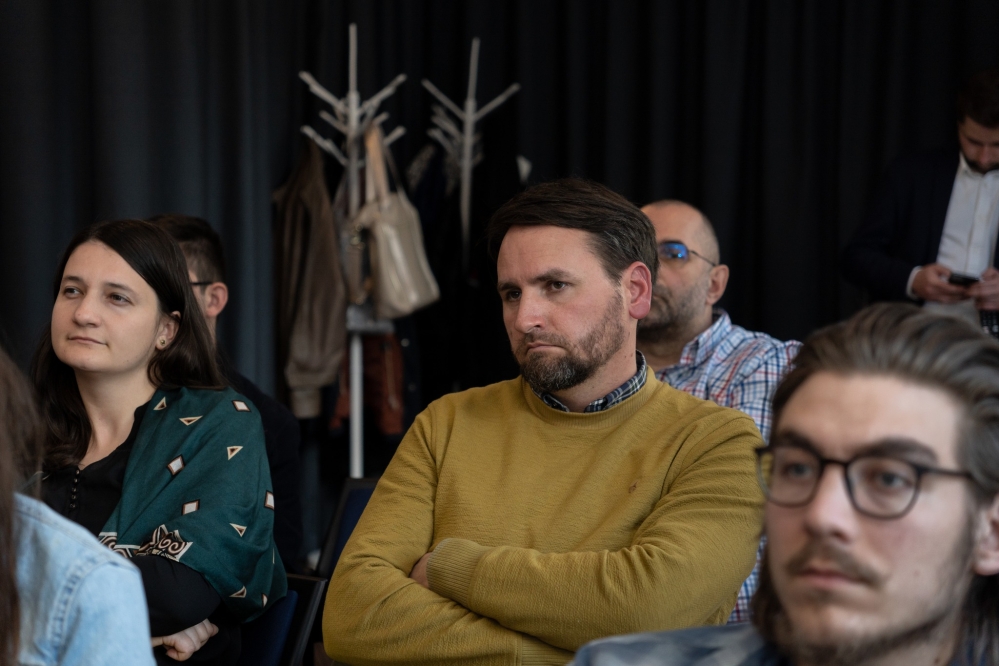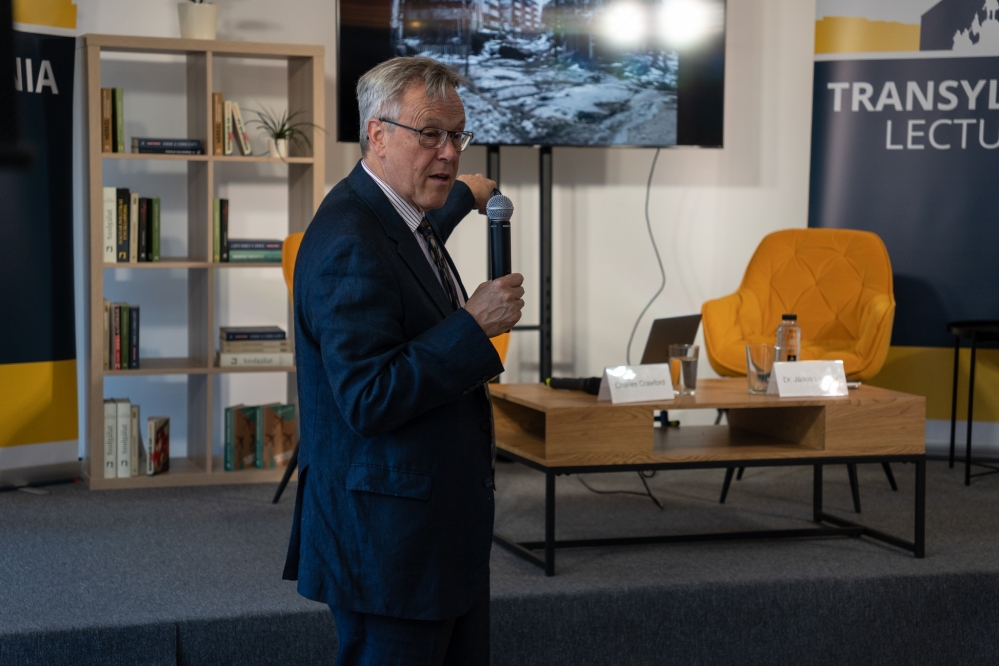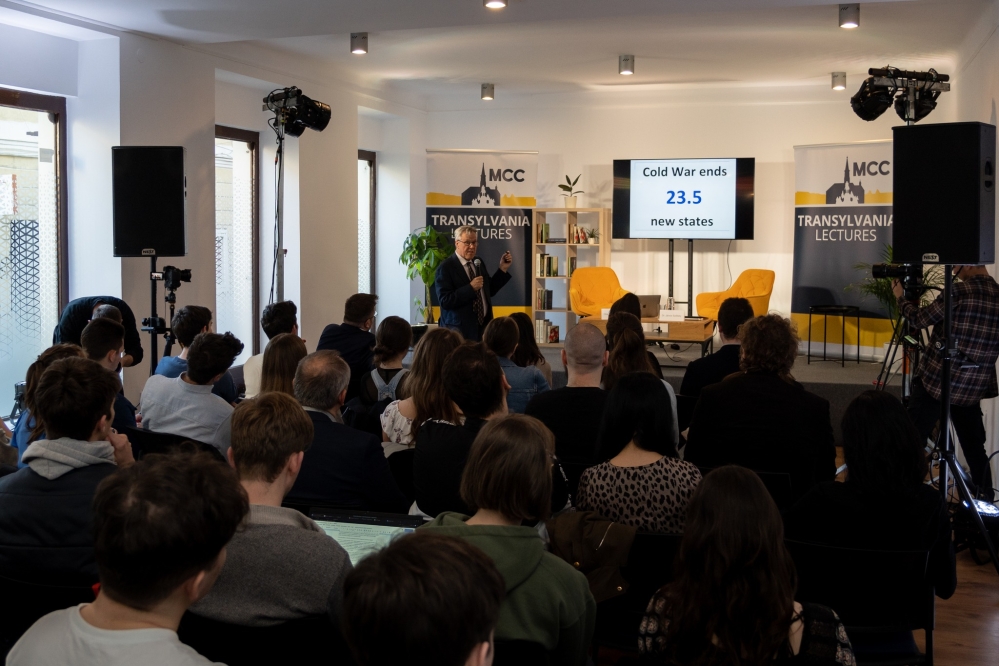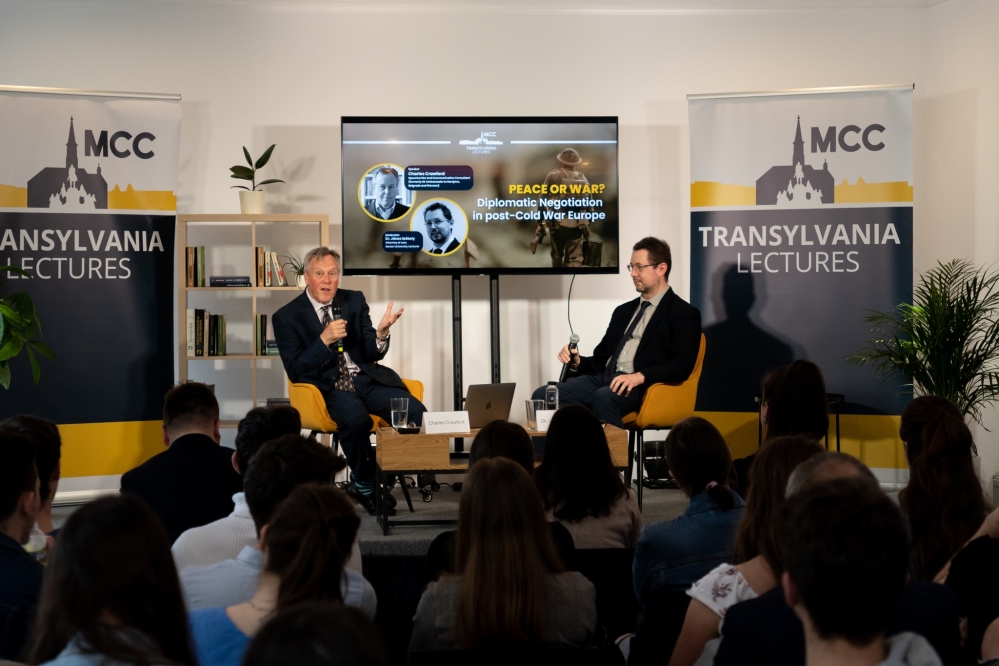Reading time: 3 minutes
The Mathias Corvinus Collegium (MCC) organized the third public event of the Transylvania Lectures series. Our guest speaker on Wednesday, 27 April, was diplomat and former British ambassador Charles Crawford, who spoke about the evolution of the international situation after the Cold War, his diplomatic work and the global impact of the Russian-Ukrainian conflict.
Transylvania Lectures is a series of monthly public events featuring foreign speakers. Held in the Kolozsvár/ Cluj-Napoca Regional Center, mainly university students participate at the talks, but anyone interested can attend and discuss important and divisive issues of our time with the invited experts. "The Transylvania Lectures series is very popular, but our other open lectures also attract interest from students and the wider community. Since the Covid restrictions have been lifted, we have organized public events in almost all our centers across Transylvania. Students, parents and local professionals are also interested in these events," said Botond Talpas, general director of MCC Transylvania.
Charles Crawford held his presentation titled Peace or War? Diplomatic Negotiation in Post-Cold War Europe took place at the MCC Center on Szentegyház (Iuliu Maniu) Street in Kolozsvár (Cluj-Napoca), followed by a discussion moderated by Dr János Székely, lawyer and associate professor at Sapientia University. Charles Crawford served as UK Ambassador to Sarajevo, Belgrade and Warsaw. He has also visited Yugoslavia, South Africa, Russia, Bosnia-Herzegovina and Serbia, as well as Poland, during a period of significant change. He now gives master classes on the principles and techniques of diplomatic negotiation to the UN and governments.
Since 1945, it has been a universally accepted rule that states cannot take over the territory of another country by force. Russia has now overturned this order, and the rules established by the UN and international law have been fundamentally upset. The Russian invasion of Ukraine poses profound new threats to Europe and the wider global order.
The speaker pointed out that while during the Cold War there was a situation of Mutually Assured Destruction (MAD), later states agreed that Mutually Assured Cooperation (MAC) was more beneficial for all. The MAC period offered the chance for significant economic development, and many took advantage of it. Today, however, a MAD system seems to be emerging again. Russia argues that they have been cheated after the Cold War and Putin has repeatedly expressed his view that they just want to keep what is theirs. But he has not specified what Russia considers its own, so theoretically they can invade almost any region and take what they want, upsetting the MAC order.
The Soviet-style attitude of "we are stronger than you think, we can take more than you can hit, and we will fight back with much worse" is still with us. So Western sanctions alone cannot stop the war. Although they cause enormous damage to the Russian economy, the whole world suffers because of them. "You can't win more at the negotiating table than you control on the ground," stressed Charles Crawford, who believes Russia will not give up Donbas. The speaker pointed out that the Russian precedent worries everyone, because what's to stop them from doing the same in Transnistria, Moldova or Poland tomorrow, or even other bigger countries? The First World War was a struggle of empires, the second a struggle of ideologies, and the third, if it happens, will be a breakdown of rules. Nuclear war was not even considered possible before, but it is a real concern now.
MAD and Big MAC are a world of rules, but we are moving towards anarchy and states cannot handle it. Finding a fair and peaceful solution is the priority. For the future, this could mean transforming the EU or NATO, rethinking the relationship with Russia or setting up new orders, explained Charles Crawford.
